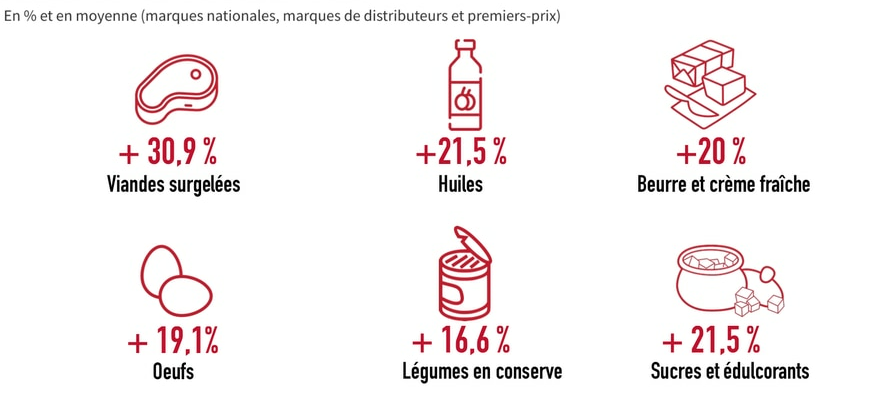Producing French, eating French: this is the government’s new objective. The Minister of Agriculture Marc Fesneau presented this March 1 a food sovereignty plan dedicated to fruits and vegetables. Because for the moment, France is far from being self-sufficient. Half of the fruits and vegetables consumed in France are imported.
“It is imperative to produce more and better,” said Marc Fesneau. Without food sovereignty, France is much more vulnerable to disruptions on the global production chain, such as the Covid-19 pandemic or the war in Ukraine. The idea is also to “anticipate and initiate ecological transitions”, indicates the government.
An envelope of 200 million euros has therefore been released. A part will be directly financed thanks to the credits of the France 2030 plan for the year 2023, specified Marc Fesneau in his presentation of the plan during the Salon de l’Agriculture. This budget should be supplemented by a similar investment from professionals.
-14 points in twenty years
For now, France’s self-sufficiency rate (i.e. the share covered by national production) is 61.3% for vegetables and 39.5% for fruit, according to 2020 data from the Center interprofessional technique (CTIFL). Even more worrying: it has collapsed in recent decades. Fruits and vegetables combined, it lost 14 points between 2000 and 2020.
The government intends to raise the bar. It wishes to gain 5 points of sovereignty in fruit and vegetables from 2030, and trigger a trend increase of 10 points by 2035. The objective is therefore, in the long term, to reach 60% autonomy.
In detail, a quarter of the public funding announced will be devoted to arboriculture. It will allow the purchase of weeding robots and protection nets against insects or hail in the orchards. Market gardening will benefit from approximately 50 million euros to build greenhouses. A third part of this endowment will be used to modernize equipment and “avoid dead ends” on phytosanitary products. The last component will be devoted to supporting research and encouraging the consumption of fruit and vegetables. At present, less than half of adults consume it daily, according to the ministry.
Price increase
This plan comes at a time when food products are experiencing an unprecedented rise in prices. Following the war in Ukraine, the price of frozen meats increased by 30.9% in one year, and that of oils by 21.5%.
The food price boom.
© / The Express
The government plan should make it possible to define “what will be the market gardening and arboriculture of tomorrow”, according to Laurent Grandin, president of the interprofession of fresh fruits and vegetables Interfel. “This presupposes significant investments but which will bear fruit very quickly.”
The causes of the loss of sovereignty are multiple. But in its report, the government mainly highlights the decline in areas of fruit crops (-7% between 2000 and 2020) and vegetables (-10%). 100,000 farms also disappeared between 2010 and 2020. The remaining farmers face international competition, with some countries having less flexible rules than those in force in France.
